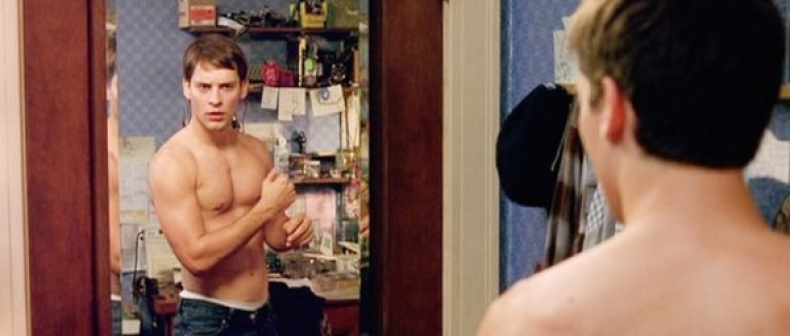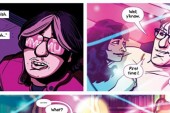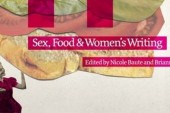
When I was six years old, I found Halloween to be the most enchanting of holidays. Young girls dressed as ethereal folklore- mermaids and witches. Boys portrayed stoic heroes- firemen and masked vigilantes. I wanted to be a cactus, but that’s another story. Fifteen awkward years later, I was discussing dating prospects with a male relative. An attractive co-worker had been gawking at him like a wild turkey for some time. When I questioned his lack of enthusiasm, he tersely responded,
“I can’t date anyone until I get a better job.”
His response left me shook. When you’re 24 years old, how could employment affect dating in the slightest? I figure so long as you can afford a hot dog you’re solid, and there’s always the pleasantry of Netflix marathons at home.

The Hot Dog bites back! (source: YouTube User: elcid1984)
Growing up with X-Men cartoons, my peers and I possessed a pious admiration of the fictional mutants, but from a psychological standpoint, the X-Men series provided an encouraging message for its young fanbase. Though Rogue and Gambit were phantasmal in every respect, what made the mutants truly captivating was their emotional depth, i.e. their superhuman flaws.
“The comic book heroes of the past…were heroes boys could look up to and learn from because outside of their costumes, they were real people with real problems and many vulnerabilities,” says Dr. Sharon Lamb of the University of Massachusetts.
Aside from their penchant for depression, today’s blockbuster superheroes are nothing short of perfect. They’re built like Olympic athletes, idolized like celebrities, and above all else, have access to everything and anything they desire. Like the majority of pop culture’s allocated role models, superheroes are (how we perceive) successful men.

Peter Parker is ready to run game now that he has pecs.
According to the National Association of Anorexia Nervosa, 10-15 per cent of people with eating disorders are male, the vast majority of them reluctant to seek treatment due to the disease’s feminine repute. Sociologist Dr. Michael Kimmel believes this is symptomatic of men’s emotional restraint.
“We’ve constructed an idea of masculinity…that doesn’t give young boys a way to feel secure in their masculinity, so we make them go prove it all the time,” Kimmel explains, “We have to give boys permission to experience a wide range of feelings. Masculinity is not never feeling scared; it’s feeling scared, and then to know you can also surmount it.”
As indicated when 5’3″ hairy brute Wolverine was portrayed by 6’2″ heartthrob Hugh Jackman in the X-Men films, good looks are a common requisite for Marvel’s leading heroes (with an exception of Deadpool who looks like fried oatmeal). But in the 21st century, the pestilence of male sex symbols has become increasingly exclusive. In the past 50 years, heartthrobs have transmuted from relatively fit to Nordic-god-level-gargantuan.

1960s Heartthrob Sean Connery and Skyfall star Daniel Craig
Male superheroes are familiar with emotional restraint, and often tormented by their tragic past and (self-inflicted) sexual repression, but compared to the shared incentive to protect humanity, desirability and social standing were seemingly futile to the 1990’s X-Men.
Unlike superheroes, men do not have a cape that masks their responsibilities, but rather a laundry list of expectations in order to be deemed a worthwhile suitor, and a worthwhile person. In pop culture, male desirability tends to fall into two categories: the comic reader and the comic hero. You can be a svelte genius with a heart of gold (see Dr. Spencer Reid of Criminal Minds), or a stoic warrior built like a Greek god, but above all else, always have enough money to buy a hot dog.
Sources
“Superheroes and Slackers: Limited Media Representations of Masculinity for Boys,” Sharon Lamb, EdD, University of Massachusetts-Boston; Lyn Mikel Brown, EdD, and Mark Tappan, EdD, Colby College
Anthony, J., Congdon, J. Disney, A., Dreyfous, G.W., Fishman, D., Johnson, S.E., Schmidt, W. , Scully, R.K., Newsom, J.S. (Producers), Newsom, J.S. (Director). (2015). The Mask You Live In [Documentary]. USA: The Representation Project.
____
Joanna Tsanis is a columnist for the Toronto Standard. Follow her on Twitter at†@joannatsanis
For more, follow us on Twitter at @TorontoStandard and subscribe to our newsletter.














